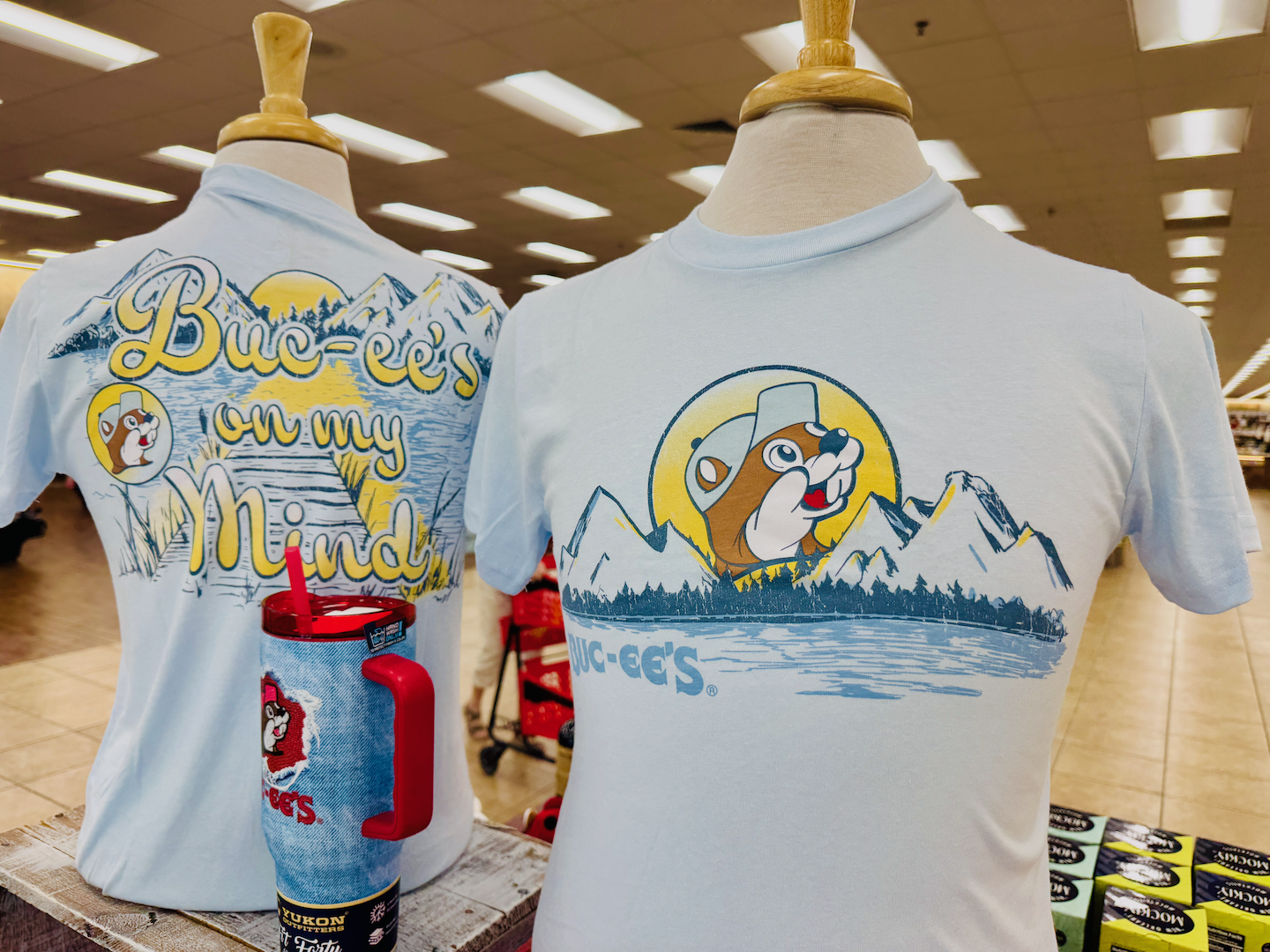
Lauren Drewes Daniels

Audio By Carbonatix
Apparently, not everyone wants a 70,000-square-foot convenience store with dozens of gas pumps, beef jerky and Beaver Nuggets for days in their backyard.
The Wall Street Journal (WSJ) recently documented a fierce storm in the foothills of the Rocky Mountains, where the Texas-born travel stop, Buc-ee’s, eyes a new home south of Denver in Palmer Lake, a town with about 2,500 residents. One opponent is billionaire media mogul John Malone, who wrote an op-ed in Colorado Springs’ local newspaper, The Gazette:
“The expansive prairie-to-peaks views of Greenland Ranch along I-25 between Larkspur and Monument can include sightings of native Colorado wildlife such as bighorn sheep, pronghorn antelope, elk, black bears and mountain lions. But an invasive species from Texas threatens the last major piece of protected open space on the Front Range: a ball-capped beaver named Buc-ee that serves as the mascot for a chain of supersized gas stations.”
Malone is America’s second-largest landowner, and his mission is to preserve the Wild West culture. The WSJ suggests that the fight “has become an epic battle over the soul of the American West.”
Buc-ee’s has acquired a cult-like following since its first store opened in the early 1980s. One could argue Buc-ee’s has enhanced travel through large states like Texas, offering a place where families or lone travelers can stop for a clean restroom break and let the dog (or kids) run around. The store offers fudge, beef jerky, and brisket sandwiches as well as, honestly, a bit of sanity with bathrooms that have set a new standard for every public restroom in America.
Now, the main road arteries that cut through our state, pumping travelers north and south, east and west, are dotted with Buc-ee’s. As soon as you leave one, a black sign with white lettering usually tells you the miles to the next one.
In addition to new roads and infrastructure, Buc-ee’s usually attracts more businesses. Take, for instance, a store north of Temple, Texas, along Interstate 35. Previously, the only option for a break in that area was a gas station on the west side of the interstate. Since Buc-ee’s arrival, several new businesses have opened, including a Starbucks and a McDonald’s. Whether or not that’s a good thing or bad for the area largely depends on your perspective.
An analysis by the financial firm Younger estimates that Beaver’s economic impact on the state’s annual revenue is $641 million, not to mention local jobs that start at $15 an hour.
Alas, Colorado Isn’t Having It
One of the main problems is that Buc-ee’s wants to set up in a sparsely populated area, as it’s wont to do. Many of the people who settled in this stretch of land south of Denver did so for that very reason: the peacefulness. They’re not too keen on the bright lights, traffic, and noise pollution the massive travel stop will bring, despite the millions of dollars it will also infuse into the local economy, including more than 200 jobs.
According to the WSJ, the chain plans to build on 41 acres of underdeveloped land full of pine trees and grass. But Buc-ee’s needs municipal water, which the land doesn’t have, meaning it will need to annex Palmer Lake’s supply. In return, the small town could expect at least a cool million in sales tax annually, a 30% boost according to the report.
Nevertheless, some locals don’t want the massive store on the horizon.
The fight between those for and against the new site in Palmer Lake has turned vicious. Personal friendships are being tested, town meetings are terse, and the mayor had to resign. There are signs, petitions, and lawyers. This isn’t the first time a Buc-ee’s has faced NIMBY opposition; stores in Southwest Florida and North Carolina also met similar pushback over pollution and traffic.
Not everyone opposes the development in rural Colorado, however. A comment on the WSJ article points out that the area is already being developed elsewhere. Byron Larson writes that he finds the anti-Bucee’s advocates to be unbelievably irrational.
“The lies, distortions, and unfounded assertions are seemingly endless,” Larson wrote. “A business there would take up a very small number of acres compared to the surrounding open space. The tax benefits to Palmer Lake would represent a huge windfall.”
The city council will make a final vote on the store later this summer, after the local planning commission finishes its full report.